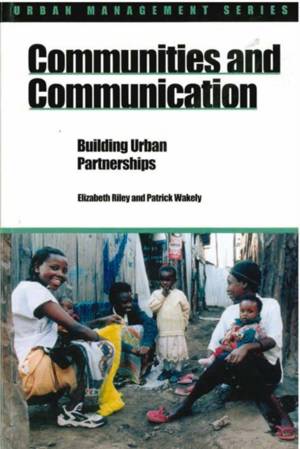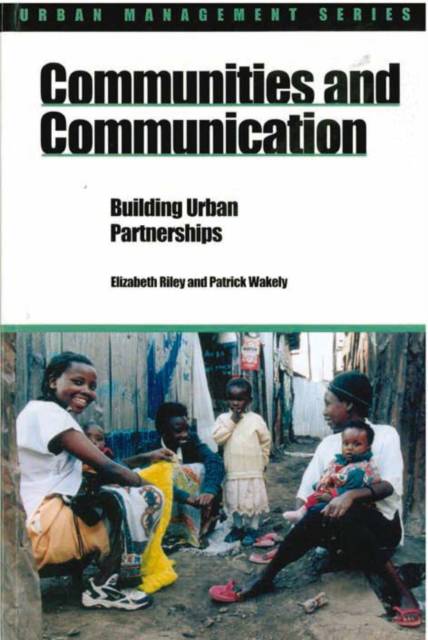
- Afhalen na 1 uur in een winkel met voorraad
- Gratis thuislevering in België vanaf € 30
- Ruim aanbod met 7 miljoen producten
- Afhalen na 1 uur in een winkel met voorraad
- Gratis thuislevering in België vanaf € 30
- Ruim aanbod met 7 miljoen producten
Zoeken
€ 26,95
+ 53 punten
Omschrijving
The current paradigm of partnership in urban development and management is widely used and accepted but there is little understanding of what makes partnerships work or fail. The broad premise that underpins this book is that a partnership is a relationship based on an agreement to share both benefits and risks. Three cities, one from each continent of the South, are studied for their complementary differences in experience and approach to local government and communication. Colombo has a long tradition of government support to community participation in slum upgrading but does not have a well-developed urban NGO movement. Nairobi has a well-organized urban NGO sector but the city has both a weak democratically-elected City Council and a centrally appointed Provincial Administration. Rio de Janeiro, which is considerably bigger than the other two cities, does not have a tradition of participation and recent municipal upgrading initiatives fail to demonstrate much meaningful resident involvement. What emerges is a picture of misunderstanding, mistrust and prejudice. The authors examine the potential of clearly focused NGOs to generate an awareness within and between low-income communities and local governments for new approaches to communication and capacity-building.
Specificaties
Betrokkenen
- Auteur(s):
- Uitgeverij:
Inhoud
- Aantal bladzijden:
- 160
- Taal:
- Engels
- Reeks:
Eigenschappen
- Productcode (EAN):
- 9781853395987
- Verschijningsdatum:
- 15/12/2005
- Uitvoering:
- Paperback
- Formaat:
- Trade paperback (VS)
- Afmetingen:
- 156 mm x 234 mm
- Gewicht:
- 366 g

Alleen bij Standaard Boekhandel
+ 53 punten op je klantenkaart van Standaard Boekhandel
Beoordelingen
We publiceren alleen reviews die voldoen aan de voorwaarden voor reviews. Bekijk onze voorwaarden voor reviews.











